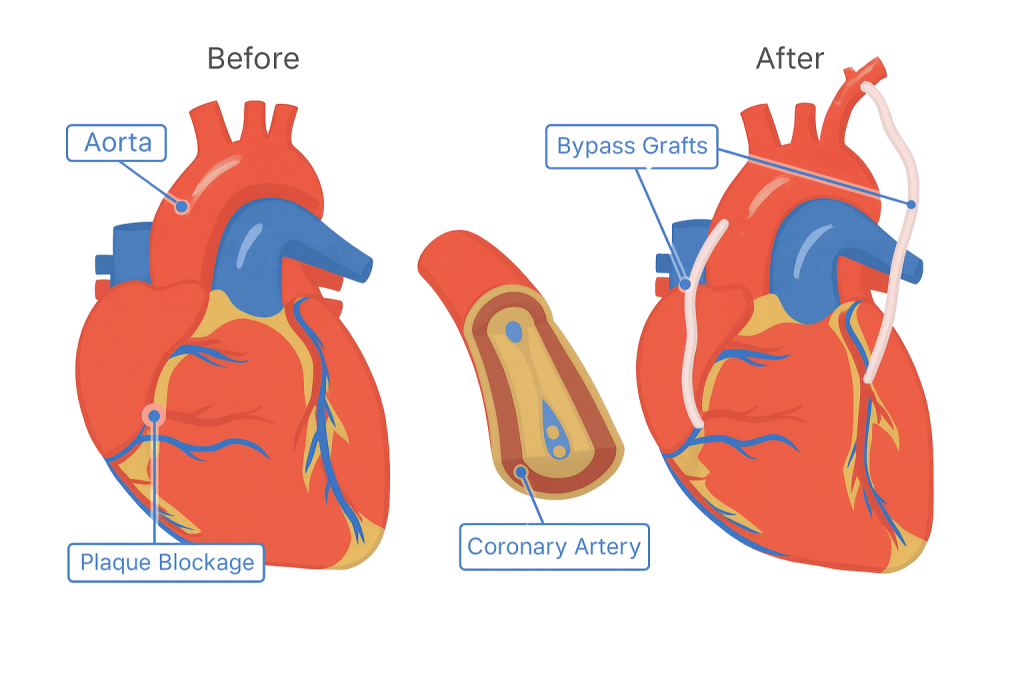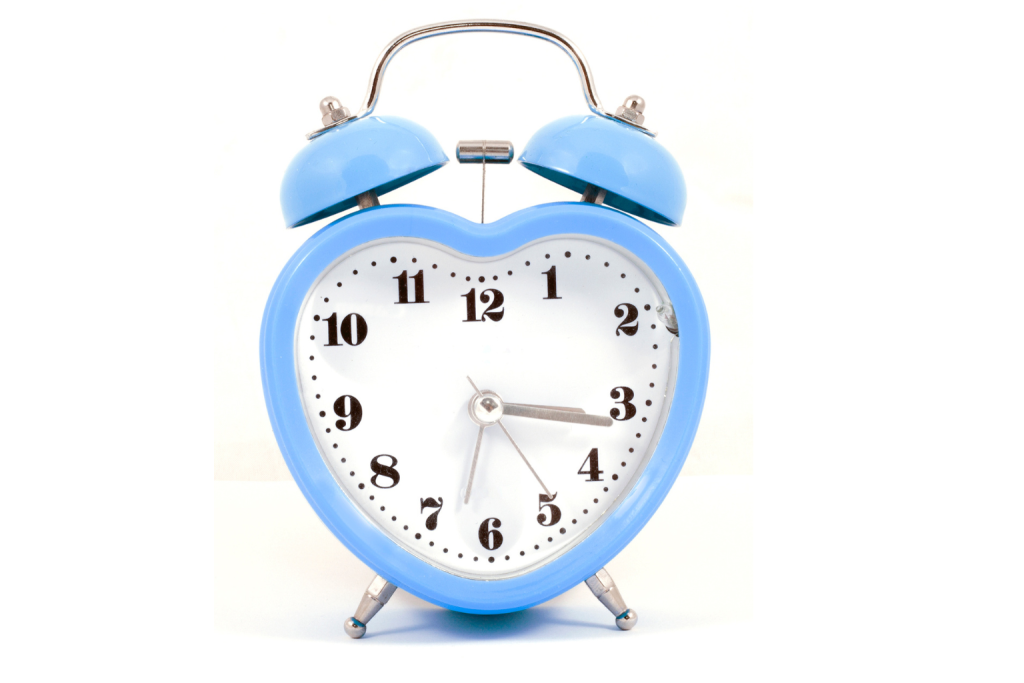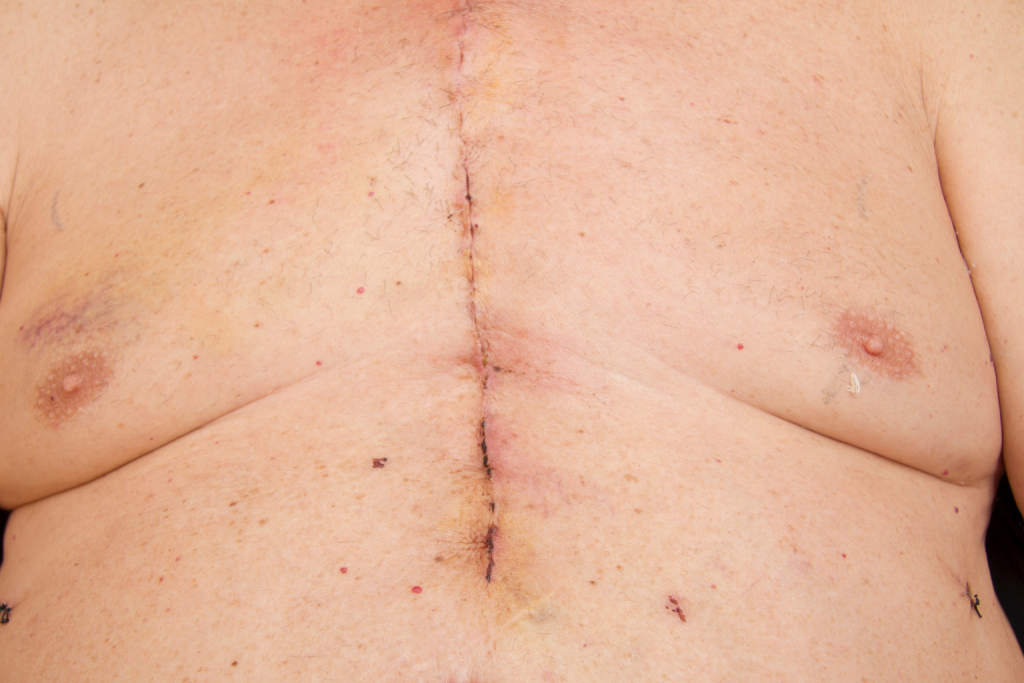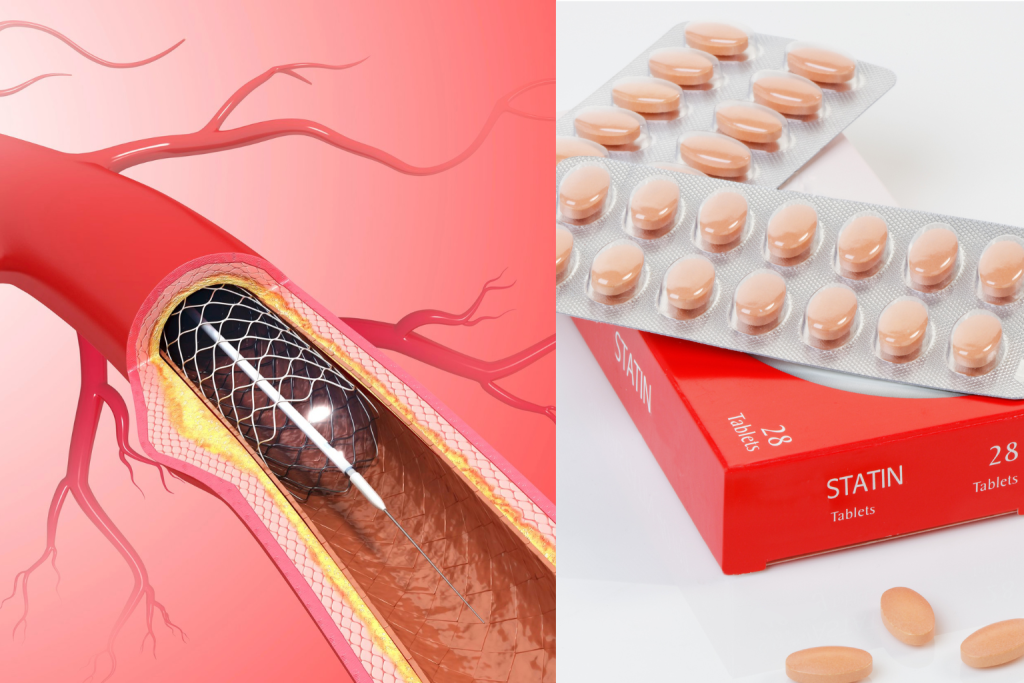A heart bypass, is an operation that helps improve blood flow to the heart.
It is usually carried out when the coronary arteries, which supply blood and oxygen to the heart muscle, have become blocked or narrowed. These blockages are caused by a build-up of fatty deposits called plaque, which reduce blood flow and can lead to chest pain, heart attacks, and other serious problems.
During the operation, a surgeon takes a blood vessel from another part of your body often the leg, arm, or chest—and attaches it to the heart arteries, creating a new route for blood to flow. This new pathway “bypasses” the blockage, restoring good blood supply to the heart.
A heart bypass is usually recommended when a person has severe coronary heart disease and other treatments are not enough. For example, if medicines and lifestyle changes are not controlling chest pain, or if angioplasty (where a small balloon and stent are used to open an artery) is not suitable.
People may also need a bypass if they have multiple blocked arteries, severe narrowing in the main artery of the heart, or if the heart muscle has already been damaged by a heart attack. Doctors weigh up the risks and benefits carefully before suggesting surgery.
The surgery is carried out under general anaesthetic, meaning the patient is asleep during the procedure. The surgeon takes a healthy blood vessel, known as a graft, from elsewhere in the body. The graft is then connected above and below the blockage in the coronary artery, creating a new route for blood.
In many cases, the heart is temporarily stopped during the operation, and a heart-lung bypass machine takes over the job of circulating blood. In other cases, called “off-pump” surgery, the heart continues beating while the grafts are put in place. The approach depends on the patient’s health and the surgeon’s decision.

The length of the operation depends on how many arteries need to be bypassed. A single bypass might take three to four hours, while a more complex operation involving several arteries can take longer. After surgery, patients usually spend a short time in intensive care before moving to a hospital ward for further recovery.

Recovery from a heart bypass takes time. Most people stay in hospital for around a week. At first, there may be some discomfort from the chest wound or the place where the graft was taken. Moving around feels difficult at first, but nurses and physiotherapists encourage gentle walking soon after the operation.
Once home, full recovery can take several weeks to months. Patients are advised to avoid heavy lifting, gradually increase activity, and take part in a cardiac rehabilitation programme. These programmes include supervised exercise, education about diet and lifestyle, and support for emotional wellbeing.

Like any major surgery, a heart bypass carries risks. These include infection, bleeding, or reaction to the anaesthetic. Rarely, more serious complications such as stroke or heart attack can occur during or after the operation. However, for people with severe heart disease, the benefits of improving blood flow and reducing symptoms usually outweigh the risks. Advances in surgical techniques and aftercare mean the operation is safer today than ever before.
A heart bypass does not cure coronary heart disease, but it can greatly improve quality of life. Many people find their chest pain improves or disappears, and their risk of heart attack is reduced. The grafts usually last many years, though how long depends on lifestyle and other health conditions. Stopping smoking, eating a balanced diet, exercising, and taking prescribed medicines all help the grafts last longer.
Most people return to normal activities after recovery, including work, hobbies, and exercise. Driving is usually possible again after six weeks, although this depends on the type of licence and personal recovery. Emotional recovery can take longer, as some people feel low or anxious after major surgery. Support from family, friends, and healthcare teams is important in this period.
In some cases, angioplasty and stents may be used instead of bypass surgery. This is less invasive and has a shorter recovery time, but it is not suitable for everyone. Medicines such as statins, beta-blockers, or nitrates may also help manage symptoms. The decision depends on the severity of the blockages, the number of arteries affected, and the overall health of the patient.

Many people live for years, or even decades, after bypass surgery. Survival depends on overall health, age, and lifestyle choices after the operation. Following medical advice and making healthy changes can extend life expectancy and reduce the risk of further problems. Regular check-ups with a doctor are important to monitor heart health and manage any ongoing conditions.
Even people who appear healthy can sometimes need a heart bypass. This might be because of genetic factors, such as inherited high cholesterol, or because of silent heart disease that develops without clear symptoms. Routine health checks and paying attention to any new chest pain or breathlessness are key to spotting problems early.
Yes, diet plays a big role in long-term recovery and preventing further problems. Doctors often recommend reducing saturated fats, eating more fruit, vegetables, and wholegrains, and cutting back on salt and sugar. These changes help lower blood pressure, cholesterol, and the risk of future blockages. Many hospitals include diet advice as part of cardiac rehabilitation.
Heart problems can show themselves in many ways, from chest discomfort and breathlessness to swelling, fatigue, or palpitations. Sometimes they are subtle and easy to dismiss, but knowing the early signs gives you the chance to act quickly. If you are worried about symptoms, it is always better to get checked rather than ignore them. Taking steps such as eating well, exercising, and stopping smoking can also help reduce the risk of heart disease.
Disclaimer: Seonat provides general health information for educational purposes only. This content is not a substitute for professional medical advice, diagnosis, or treatment. Always seek the advice of your GP or another qualified health provider with any questions about a medical condition or before making health decisions.

Simplifying health information for those who need it most
Please note: we are not medical professionals, and the content on this website is for general information only. Always speak to a qualified healthcare provider for medical advice.